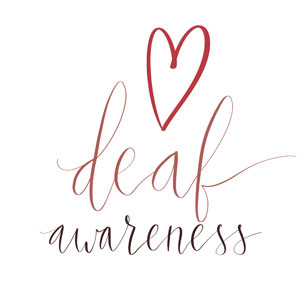 The experiences of marginalized people are being shared more widely than ever thanks to social media. This is certainly true within the Deaf and Hard of Hearing community, where people from all backgrounds can utilize various platforms to connect with an engaged audience and publicly share their everyday lives, their success stories, and unfortunate personal experiences of injustice.
The experiences of marginalized people are being shared more widely than ever thanks to social media. This is certainly true within the Deaf and Hard of Hearing community, where people from all backgrounds can utilize various platforms to connect with an engaged audience and publicly share their everyday lives, their success stories, and unfortunate personal experiences of injustice.
Sometimes incidents of discrimination can occur at a business, which then places that organization under scrutiny for practices that limit diversity. This could be a cashier who mocks a Deaf customer, such as this unfortunate example, or perhaps or a supervisor who doesn’t give their Deaf/ HoH employee a shot at promotion because there’s no verbal connection, nor interpreting services provided for professional development workshops.
 Every employee at an organization — whether they are in Human Resources, Customer Service, or Tech Support — serves as a public representative of that business. An employee’s behavior can have a direct financial impact, as well as a long term impact upon brand reputation. When employees receive the kind of training that enables them to make culturally competent decisions on the job, they are empowered with the tools they need to create and maintain productive relationships.
Every employee at an organization — whether they are in Human Resources, Customer Service, or Tech Support — serves as a public representative of that business. An employee’s behavior can have a direct financial impact, as well as a long term impact upon brand reputation. When employees receive the kind of training that enables them to make culturally competent decisions on the job, they are empowered with the tools they need to create and maintain productive relationships.
No one can speak to the trials and triumphs of a marginalized community better than a member of that community. The most effective Cultural Competency Training is facilitated directly by those who have firsthand experience navigating specific systems of oppression. Here at LCIS, we utilize the skills of Deaf and Hard of Hearing consultants to offer unique insight through our engaging cultural competency training programs. Employees are encouraged to ask questions and engage in candid dialogue with Deaf and Hard of Hearing consultants in an educational setting where confidence can be developed.
 A thorough cultural competency training program can benefit any organization. By offering employees the opportunity and support to learn, inclusion efforts establish loyal relationships with employees and customers. Additionally, these professional development programs demonstrate a real commitment to social integrity. Effective cultural competency training fosters a more multicultural environment moving forward, where culturally competent HR managers are able to attract, hire, and promote talented candidates representing a variety of marginalized identities; which in turn welcomes even more diversity!
A thorough cultural competency training program can benefit any organization. By offering employees the opportunity and support to learn, inclusion efforts establish loyal relationships with employees and customers. Additionally, these professional development programs demonstrate a real commitment to social integrity. Effective cultural competency training fosters a more multicultural environment moving forward, where culturally competent HR managers are able to attract, hire, and promote talented candidates representing a variety of marginalized identities; which in turn welcomes even more diversity!
 Proper cultural competency training is an investment in the very foundation of an organization. By offering employees these opportunities and support to grow, companies can build awareness right into their corporate culture. As some businesses discover the hard way, it’s much better to get ahead of social progress than to fall behind and risk having employees without training representing the company in a way that is not true to its values.
Proper cultural competency training is an investment in the very foundation of an organization. By offering employees these opportunities and support to grow, companies can build awareness right into their corporate culture. As some businesses discover the hard way, it’s much better to get ahead of social progress than to fall behind and risk having employees without training representing the company in a way that is not true to its values.
Click here to learn more about Cultural Competency Training, or to refer a company for our training programs! We offer customized training from Deaf and Hard of Hearing consultants to help organizations of any size develop meaningful connections with the Deaf and HoH community: including employees, customers, and clients.
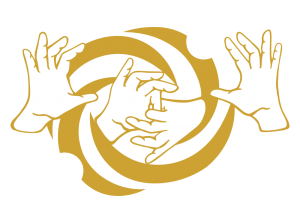



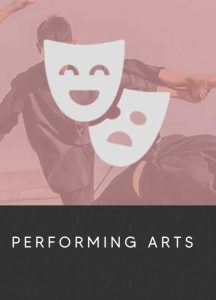







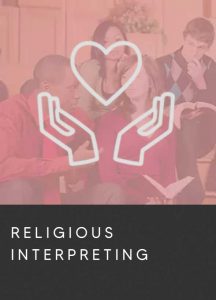
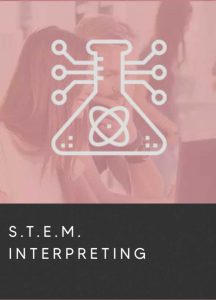
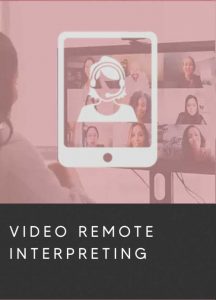
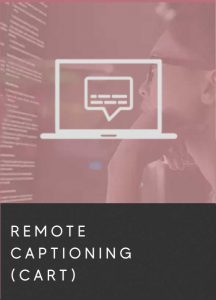

 The experiences of marginalized people are being shared more widely than ever thanks to social media. This is certainly true within the Deaf and Hard of Hearing community, where people from all backgrounds can utilize various platforms to connect with an engaged audience and publicly share their everyday lives, their success stories, and unfortunate personal experiences of injustice.
The experiences of marginalized people are being shared more widely than ever thanks to social media. This is certainly true within the Deaf and Hard of Hearing community, where people from all backgrounds can utilize various platforms to connect with an engaged audience and publicly share their everyday lives, their success stories, and unfortunate personal experiences of injustice. Every employee at an organization — whether they are in Human Resources, Customer Service, or Tech Support — serves as a public representative of that business. An employee’s behavior can have a direct financial impact, as well as a long term impact upon brand reputation. When employees receive the kind of training that enables them to make culturally competent decisions on the job, they are empowered with the tools they need to create and maintain productive relationships.
Every employee at an organization — whether they are in Human Resources, Customer Service, or Tech Support — serves as a public representative of that business. An employee’s behavior can have a direct financial impact, as well as a long term impact upon brand reputation. When employees receive the kind of training that enables them to make culturally competent decisions on the job, they are empowered with the tools they need to create and maintain productive relationships. A thorough cultural competency training program can benefit any organization. By offering employees the opportunity and support to learn, inclusion efforts establish loyal relationships with employees and customers. Additionally, these professional development programs demonstrate a real commitment to social integrity. Effective cultural competency training fosters a more multicultural environment moving forward, where culturally competent HR managers are able to attract, hire, and promote talented candidates representing a variety of marginalized identities; which in turn welcomes even more diversity!
A thorough cultural competency training program can benefit any organization. By offering employees the opportunity and support to learn, inclusion efforts establish loyal relationships with employees and customers. Additionally, these professional development programs demonstrate a real commitment to social integrity. Effective cultural competency training fosters a more multicultural environment moving forward, where culturally competent HR managers are able to attract, hire, and promote talented candidates representing a variety of marginalized identities; which in turn welcomes even more diversity! Proper cultural competency training is an investment in the very foundation of an organization. By offering employees these opportunities and support to grow, companies can build awareness right into their corporate culture. As some businesses discover the hard way, it’s much better to get ahead of social progress than to fall behind and risk having employees without training representing the company in a way that is not true to its values.
Proper cultural competency training is an investment in the very foundation of an organization. By offering employees these opportunities and support to grow, companies can build awareness right into their corporate culture. As some businesses discover the hard way, it’s much better to get ahead of social progress than to fall behind and risk having employees without training representing the company in a way that is not true to its values.





